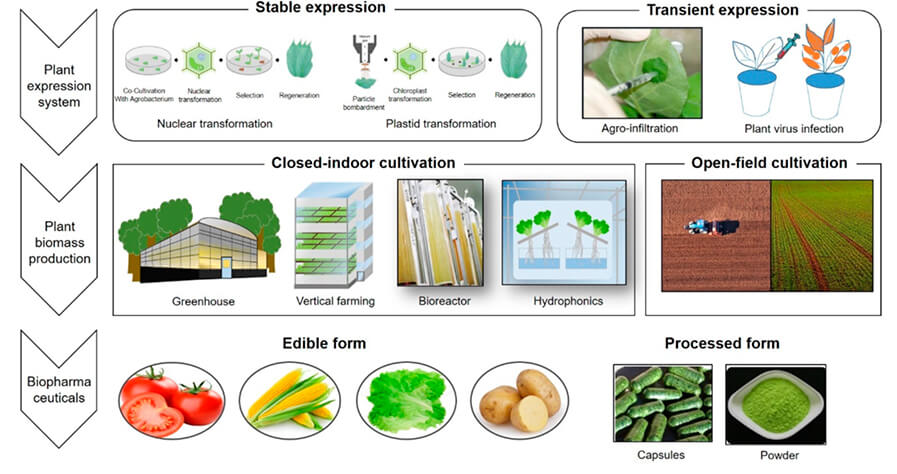Due to the great complexity and near-infinite diversity, proteins are suitable for many different applications. For example, some proteins, such as antibodies, vaccines, enzymes, cytokines, and growth factors, are used as therapeutic proteins. Some proteins are used as diagnostics or research reagents. Many proteins are also widely used in industry, including enzymes used to manufacture textiles and chemicals and to process food and feed. With the growing demand for complex proteins, there is an increasing need for safe, scalable, and economical systems for protein expression. Lifeasible, as a world-class plant technology company, focuses on the rapid development and production of customized recombinant proteins using plant-based system.
Though many conventional systems, such as prokaryotic cells (mainly Escherichia coli), yeast, well-characterized mammalian cell lines, insect cells, and cell-free expression platforms, are widely used for production of most recombinant proteins currently, plants as a promising expression platform offer unique advantages, including:
 Figure 1. Overview of production system of plant-based biopharmaceuticals and plant biomass (Moon et al., 2020).
Figure 1. Overview of production system of plant-based biopharmaceuticals and plant biomass (Moon et al., 2020).
Lifeasible provides an extremely diverse array of plant protein expression systems, including whole plants, various tissue, and cell systems (hairy roots and cell suspension cultures), and numerous expression approaches (stably transformed transgenic and transplastomic plants, transient expression systems, inducible expression, and different protein targeting strategies). We also offer various ways for plant cultivation, including greenhouses, vertical farming units, cell bioreactors, hydroponic systems, and open-field cultivation to meet customer diverse requirements (Figure 1). At Lifeasible, a wide range of plants, such as lettuce, tobacco, rice, soybean, carrot cells, and Arabidopsis thaliana, have been developed for protein production. You will benefit from our one-stop services from gene synthesis, vector construct, plant transformation, to protein purification. We will provide you cost-effective services and high quality proteins. For more information, please contact us.
Reference